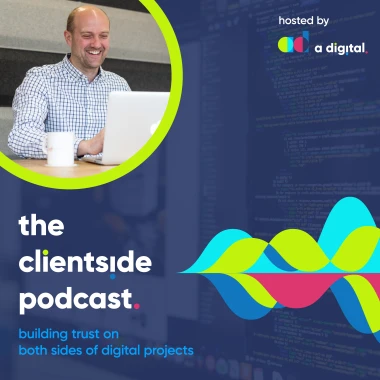
Talking about website security with Matt Shearing
The Clientside Podcast
Website maintenance and security is something that can be overlooked as it's often one of those things that is out of sight, out of mind. However, websites are surrounded by an environment that is always changing, sometimes at light speed, which inevitably has an impact on your website.
In this episode, Andrew Armitage talks to A Digital developer Matt Shearing about the importance of keeping a website up to date and why security should be high up on your list of priorities as a website owner.
Listen on your smart device or read the transcript below
You've got a responsibility to your customers if you're taking their data, and the way I look at it is, your website helps you to run your business in the same way that you might have an iPhone. You're not still on an iPhone 4 or 5. They get slow after a couple of years and you have a need to update them so you can still use all the latest features. And it's similar to that with websites.
Matt Shearing Tweet